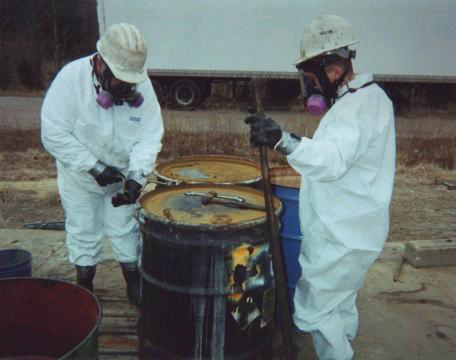COURSE OVERVIEW
HE0161 : Certified Training in Respiratory Equipment for Safety Engineers (Train-the-Trainer)

OVERVIEW
| COURSE TITLE | : | HE0161 : Certified Training in Respiratory Equipment for Safety Engineers (Train-the-Trainer) |
| COURSE DATE | : | Oct 21 - Oct 25 2024 |
| DURATION | : | 5 Days |
| INSTRUCTOR | : | Mr. Peter Redbourn |
| VENUE | : | Abu Dhabi, UAE |
| COURSE FEE | : | $ 5500 |
| Request For Course Outline | ||
OTHER SCHEDULED DATES
| Date | : | Apr 28 - May 02 (5 Days) | Location | : | Dubai, UAE | Classroom Fee (US$) | : | $ 5500 | Course Info |
| Date | : | Jul 21 - Jul 25 (5 Days) | Location | : | Istanbul, Turkey | Classroom Fee (US$) | : | $ 6000 | Course Info |
Course Description
Practical sessions will be organized during the course for delegates to practice the theory learnt. Delegates will be provided with an opportunity to carryout various exercises using SCBA & H2S Detector. H2S (hydrogen sulphide) is a gas that can be created by natural biological processes or by human activity and poses a serious threat to people or assets because of its extremely toxic and corrosive properties. It is important, therefore, for oil and gas personnel to be competent in emergency response practices necessary for them to stay and work in an environment with potential for exposure to H2S gas. This course covers the emergency response competency requirements and provides details of training required for personnel working in potential H2S environments. It covers the characteristics of hydrogen sulphide gas and the potential physiological effects of exposure as well as the use of H2S detection equipment and escape breathing apparatus (SCBA). The respiratory system of the human body is the most vulnerable to injury, especially from toxic conditions and gases encountered in refineries, oil and gas fields. Self-contained breathing apparatus (SCBA) is one of the most important items of personal protective equipment used in case of H2S release. This course is designed to provide participants with proper techniques and skills for inspection and using self-contained breathing apparatus (SCBA) sets. link to course overview PDF
TRAINING METHODOLOGY
This interactive training course includes the following training methodologies as a percentage of the total tuition hours
LecturesWorkshops & Work Presentations
Case Studies & Practical Exercises
Videos, Software & Simulators
In an unlikely event, the course instructor may modify the above training methodology before or during the course for technical reasons.
VIRTUAL TRAINING (IF APPLICABLE)
If this course is delivered online as a Virtual Training, the following limitations will be applicable
| Certificates | : | Only soft copy certificates will be issued to participants through Haward’s Portal. This includes Wallet Card Certificates if applicable |
| Training Materials | : | Only soft copy Training Materials (PDF format) will be issued to participant through the Virtual Training Platform |
| Training Methodology | : | 80% of the program will be theory and 20% will be practical sessions, exercises, case studies, simulators or videos |
| Training Program | : | The training will be for 4 hours per day starting at 09:30 and ending at 13:30 |
| H-STK Smart Training Kit | : | Not Applicable |
| Hands-on Practical Workshops | : | Not Applicable |
| Site Visit | : | Not Applicable |
| Simulators | : | Only software simulators will be used in the virtual courses. Hardware simulators are not applicable and will not be used in Virtual Training |
RELATED COURSES

HE0015(QP1) : Storage, Handling & Safe Use of Chemicals & Hazardous Materials
- Date : Dec 22 -Dec 26 / 3 Days
- Location : Al Khobar, KSA
- Course Details Register

HE0756 : Rescue Operations in Hazardous Locations
- Date : Nov 25 -Nov 29 / 3 Days
- Location : Abu Dhabi, UAE
- Course Details Register

HE1704 : NFPA 1001: Fire Fighting Level 1 and 2
- Date : Nov 25 -Nov 29 / 3 Days
- Location : Abu Dhabi, UAE
- Course Details Register

HE1820 : Professional Process Safety Inspector (PPSI): Module 1: Fundamentals of Process Safety
- Date : Nov 11 -Nov 15 / 3 Days
- Location : Abu Dhabi, UAE
- Course Details Register
